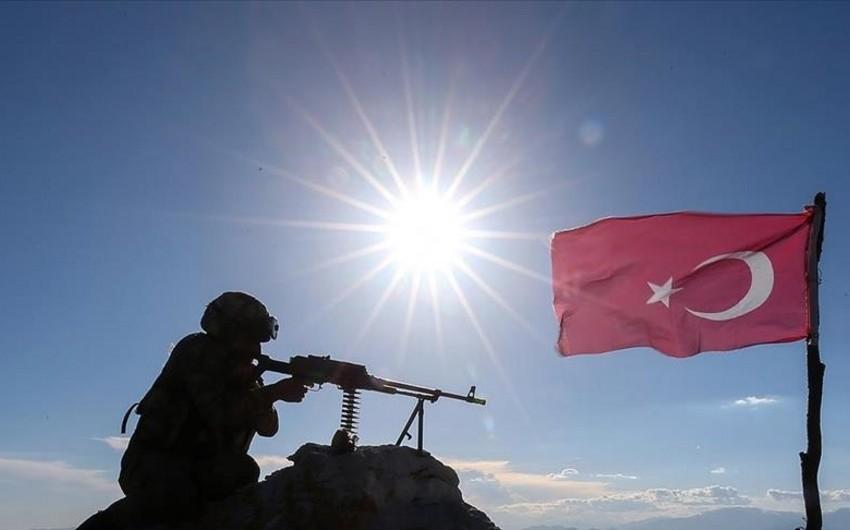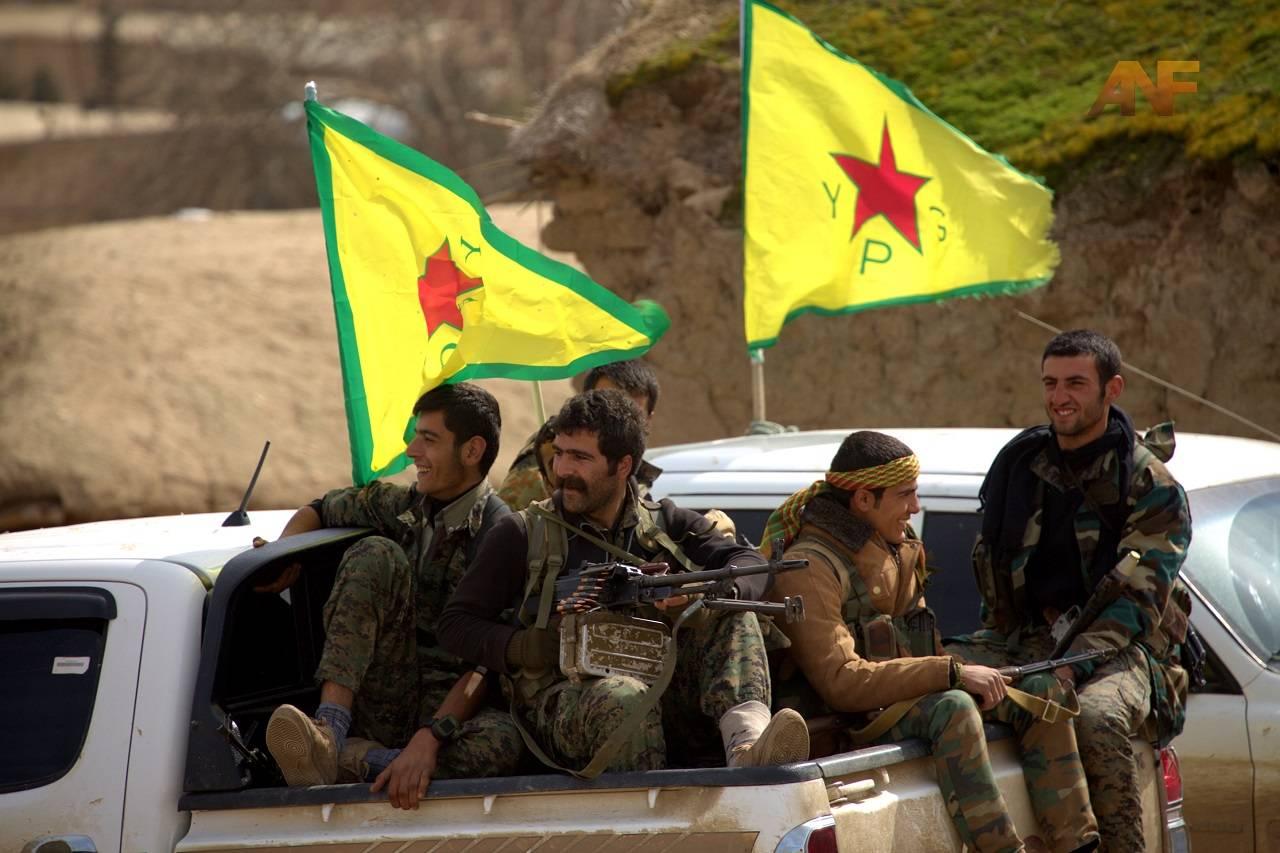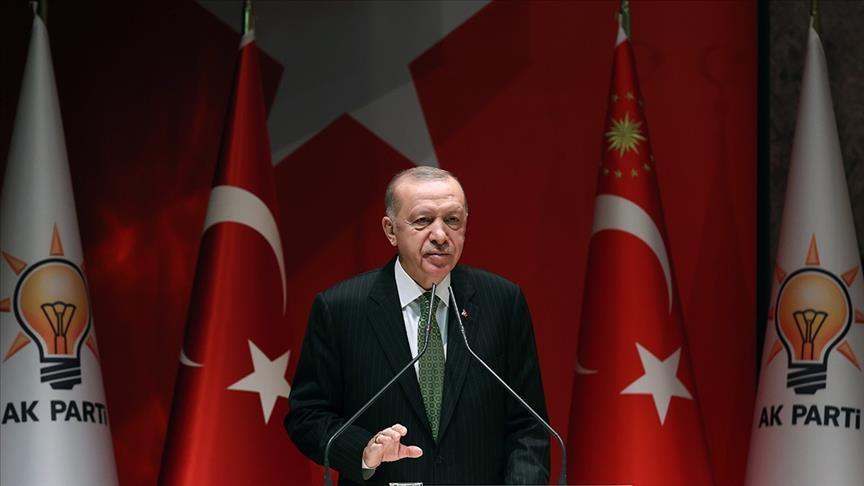Türkiye dealing with its problems without US, Russia Belarusian pundit’s analysis
Doctor of Political Sciences from Belarus Sergei Bogdan’s exclusive analysis for Caliber.Az.
Türkiye announced the beginning of another anti-terrorist operation in northern Syria on June 1, 2022. The country has been trying to contain the activities of radical organisations on its borders long ago, which it, as opposed to Western countries, considers as terrorist organisations.
The Turkish leadership not only has reacted to the reduction of the Russian troops and Iran’s strengthening in Syria but has also made it clear that it will not allow the external forces, even allies, to reshape neighbouring territories.
Türkiye wants to put an end to Western experiments with Kurdish nationalism.
Ankara transfers the war from its territory
The purpose of the current Turkish operation is the creation of a 30-kilometre "security zone" along the Syrian-Turkish border. First, the detachments of the Kurdistan Workers' Party (PKK) must be driven out of Syria’s Tal Rifat and Manbij towns, then the operation will be extended to other border regions of the country. In fact, hostilities were launched last week as the Turkish Ministry of Defence announced the liquidation of 15 PKK members in northern Syria on May 29, 2022.
At the same time, the Turkish army has been conducting an operation against PKK in northern Iraq since April 18, 2022. The information went viral in April 2022 that Türkiye intended to advance 50-60 kilometres deep into Iraq as part of this offensive. According to the unofficial data, Türkiye can have about 30 temporary military bases in Iraqi Kurdistan as it has good relations with the authorities of the local Kurdish autonomy (which is insubordinate to the central Iraqi government and at odds with PKK).

To consider these operations as something new, or to link them to fluctuations in the internal ratings of Turkish President Recep Tayyip Erdogan and the ruling Justice and Development Party, as some analysts do, is to ignore the historical context. Türkiye has been conducting operations against PKK for several decades in neighbouring countries that are unable to control part of their territories. The process was launched in Iraq, which, as a result of the war with Iran, lost control over some districts in its north, and Türkiye dispatched about two brigades there in 1983. According to some sources, as a result, 22 members of the Armenian Secret Army for the Liberation of Armenia (ASALA) were killed. Then the PKK organization was at the stage of creation. Türkiye intended to create a "buffer zone".
Such operations in Iraq have become more frequent since the 1990s in connection with Baghdad’s subsequent weakening due to the Western sanctions. After the civil war in Syria, the Turkish army began to conduct similar operations in northern Syria. Three Turkish operations against PKK have been held in Syria since 2017, namely, Operations Euphrates Shield, Olive Branch, and Peace Spring. A security zone was gradually built up, primarily on the western section of the Syrian-Turkish border. The area between Syria’s Azaz and Jarabulus cities which are in the north of the Aleppo city, as well as the town of Afrin, and other border areas in the east of the Euphrates River were taken under control.
PKK’s secret history
Türkiye's confrontation with PKK, which has created several bases in northern Iraq and Syria, has been ongoing for the fourth decade. The current phase was launched in 2015. The Turkish military said that more than 10,000 militants have been killed, while about 1,000 Turkish servicemen and nearly 500 civilians have also been murdered by PKK members since that period.
However, the Syrian civil war gave PKK a chance not only to recover but also to “turn into” an acceptable and even appreciated organisation by the West. The interaction with the Western public and the media contributed to this process. Based on the traditional Western narratives, the Kurds are the biggest nation without a state. Among their friends are only mountains. The “Syrian Kurds” (whom President Erdogan is striving to neutralise) gained a victory over the Islamists from the Islamic State of Iraq and Syria (ISIS) thanks to the US troops, etc.
All these talentedly picked slogans are based on a dubious history skillfully chosen to please the main Western audience, no matter how ridiculous they may look for more knowledgeable people. Let’s not discuss bigger questions related to Kurdish ethnic nationalism. It is difficult to expect anything else from the West as it promotes ethnic nationalism along with economic neoliberalism as the main ideology worldwide.
While analysing the situation in northern Syria and Iraq, let’s think about whether it is worth talking about the "Syrian Kurds" (as the West likes to do) or clarifying that PKK is the main actor there. Then it is worth remembering PKK’s history and its branches, avoiding its distant past, for telling about the tragic centuries-old history of the Kurdish people, ignoring the recent and important context.
PKK was created by Turkish Kurdish left-wing activists in the early 1980s and was appreciated by Hafez al-Assad, father of incumbent Syrian President Bashar al-Assad and the country's then-ruler. During that period Syria and Türkiye came into conflict over Turkish plans for a large-scale modernisation of Türkiye’s districts adjacent to Syria (known as the GAP project). In particular, Damascus feared that the implementation of these plans would reduce its water resources and it preferred to work with such notorious radical organisations as PKK and ASALA. The Syrian side’s relations with these organisations could remain disguised for a long period, while the activity of these organisations correlated with the struggle of Damascus against the GAP project. All this lasted until the late 1990s, and Armenia, Iran and even Russia were involved in strange relations and contacts with PKK in the 1990s.
Finally, Ankara sent its tanks to the border in autumn 1998 and demanded that Damascus should immediately close PKK bases in Syria. As a result, PKK founder Abdullah Ocalan who had lived quietly in Damascus for many years was forced to seek refuge worldwide. He was staying at Russian politician Vladimir Zhirinovsky's cottage house near Moscow for a short period of time. Then Ocalan was captured in Africa. His followers lost the Syrian bases and this undermined PKK’s activity for many years. It would seem that its activity has come to an end. PKK changed names and programs. Its followers themselves were confused about their plans.
It began to reincarnate when separate divisions of an anti-imperialist party began to look for a new niche for themselves in a world in which the West had gained a victory. Immediately after the US occupation of Iraq, the so-called "Kurdistan Free Life Party" appeared in 2004. PKK’s this semi-official branch waged a war with the Iranian regime hated by the West, based in the US-controlled areas of Iraq. Then the media repeatedly reported about possible evidence of contacts and ties of this party with the US and its allies. US journalist Seymour Hersh has made high-profile statements on the issue.
Why are we telling all this? It is necessary to show that PKK began working with the West even before the Syrian war, and the issue refers not only to Syria. Indeed, taking into account PKK’s abundant revolutionary past, it is not easy for this party to establish friendly relations with the West, but it is doing its best. Ocalan was thoroughly writing his treatises in Omerli village, changing PKK’s ideology in accordance with modern Western trends. As a result, something was achieved, and as we see the West has relied on the Kurdish groups associated with PKK in Syria since the civil war of the 2010s.

Formally, the US supported the so-called "Syrian Democratic Forces ", but in fact, it was the "People's Protection Units" (YPG), associated with PKK. Washington has been rendering political and military support to these groups since the mid-2010s, which actually resulted in the creation of a protective zone in eastern Syria. If anyone doubts the strength of these ties, this was demonstrated during the notorious massacre in which the well-known Russian Wagner Group suffered in Syria in February 2018. The Russians tried to capture the refineries controlled by these Kurdish friends of the Americans. Having lost an unknown number of fighters (numerous fighters were killed), the Russian company simply retreated, the Kremlin pretended that nothing had happened, and dozens of Russian citizens simply disappeared.
Türkiye is concerned that PKK has begun to legitimise its activity in the West through its Iranian, Syrian and European branches (although not legalised yet, the party is formally considered a terrorist organisation in Western countries). The issue is the geopolitical analysis. In fact, two major Kurdish political projects (PKK and the Iraqi Kurds, they are at enmity with each other, but both are quite dynamic) have begun to successfully fight for the right to be the "beloved friend of the West", so far between themselves, but in case of some major upheavals in the world and in the region, they will also try to oust the current partners of the West, challenging the major regional players. The Iraqi Kurds are already trying to present themselves as a more patient partner, an "unsinkable aircraft carrier" of the US in the region, than Türkiye, which clearly sets its conditions in this partnership. So far PKK’s positions look weaker, but it seems so. A party that is waging war in four countries, in particular, on the West’s side in Iran and Syria, is a major player. Therefore, it is important for Ankara not only to ensure security (although this is also significant), but also to prevent the creation of the Kurdish state formation, for example, the so-called "Rojava" in Syria, which will begin to compete with Türkiye within the global coalitions and organisations of the West.
Kurdish project as "another Israel"
The Turkish leadership tried to close the Rojava project by urging its main partners to cooperate without using weapons. Even the current operation in Syria was loudly and repeatedly announced by the Turks before it was launched. Perhaps, Ankara hoped that the US and Russia would pay attention to its warnings, and planned to take advantage of the favourable international situation. Currently, the West would like to get Ankara’s consent to the NATO expansion and therefore could agree with Turkish actions in exchange for a deal on Finland and Sweden’s NATO membership bids. Russia also needs a partnership with Türkiye in case of the blockade in the western direction.
The Turkish leadership emphasizes that Ankara began to act in Syria due to the failure of the US and Russia to fulfil their obligations to create a security zone for Turkey. This is a very veiled description of the problem. After all, a number of NATO countries, including the US, have actually been playing a very ambiguous game with PKK for a long time, which in the long term will entail strategic consequences for the entire region. Much information about the West's relationship with PKK in recent decades (as well as with Russia in the 1990s) simply remains hidden. The Western media just shows romantic footage of girls with guns rebelling against oppression in Syria.

Indeed, President Erdogan said on June 1, 2022, that Ankara had not received proposals to resolve issues related to the activity of PKK and other radical Turkish organisations in Northern Europe, because of which Türkiye opposes Sweden and Finland joining NATO. The Turkish leader added that these organisations receive de facto support in Germany, France, and the Netherlands.
However, this is just how the iceberg looks above the water. The most interesting part is out of sight. The US Department of State announced its concern on May 31, 2022, about the Turkish operation against PKK in Syria claiming that any Turkish offensive in northern Syria will undermine regional stability. US Secretary of State Antony Blinken opposed Turkey's military operation at a joint press conference with NATO Secretary-General Jens Stoltenberg on June 1, 2022. He also stated that any offensive actions in northern Syria could lead to negative consequences for the entire region. These statements are very interesting because a meeting was held between Turkish Foreign Minister Mevlut Cavusoglu and US Secretary of State Antony Blinken within the new Türkiye-US Strategic Mechanism in New York on May 19, 2022, at which they agreed to work "as allies and partners".
As opposed to the West, Russia does not make any experiments with PKK after 1999. Bashar al-Assad’s government has always been its main partner in Syria even during the civil war. President Erdogan held phone talks with Russian President Putin on May 30, 2022 on the eve of the official beginning of the operation. Although the special attention was paid to Ukraine, the Turkish Anadolu news agency reported that “Erdogan noted that although the requirement to clear the Syrian regions bordering Turkey from terrorists was included as a separate clause in the agreement dated October 2019, the issue still remains open”. The Turkish leader said that the issue concerns YPG, associated with the Kurdistan Workers' Party.
Indeed, Putin and Erdogan signed a Memorandum of Understanding in Russia’s Sochi city in 2019, relying on the implementation of which Turkey suspended operations against the YPG. Based on the document, YPG would send its forces deep into Syrian territory, at a distance of 30 kilometres from the border with Turkey, and also withdraw from Manbij and Tal Rifat cities. The Russian side announced YPG’s retreat a week after the signing of the memorandum but Türkiye is convinced that the agreement was not fully implemented. Ankara wanted to launch another operation in northern Syria in late 2020, and only Russia's emergency measures, including those through the creation of new roadblocks, allowed to prevent the entry of troops.
The Kremlin did not comply with the agreements with Türkiye regarding the quasi-Western forces in Syria even amid confrontation with the West. There are such a policy and the emerging transformations of international politics behind individual operations. After the collapse of the Soviet Union, people talked a lot about a "multipolar world". While making such conversations “for the benefit of the poor,” that is, by cajoling people in developing countries, Moscow has thoroughly worked (and is working) only with the West, namely, only with the US. Other countries not only China, but also Türkiye, and politicians were dealing with the construction of a multipolar world amid this situation. If economically Türkiye can bear this burdern, then it can become one of the poles. Indeed, as opposed to many European countries, Türkiye participates in Western organisations on its own terms. Türkiye’s actions in Syria testify to this. Of course, to understand this, one should stop looking at the current PKK (YPG, etc.) through its propaganda. This is an organisation striving to become a minority partner of the West wherever possible. This is the key context of events in this region. Everything else is romantic fluff.








